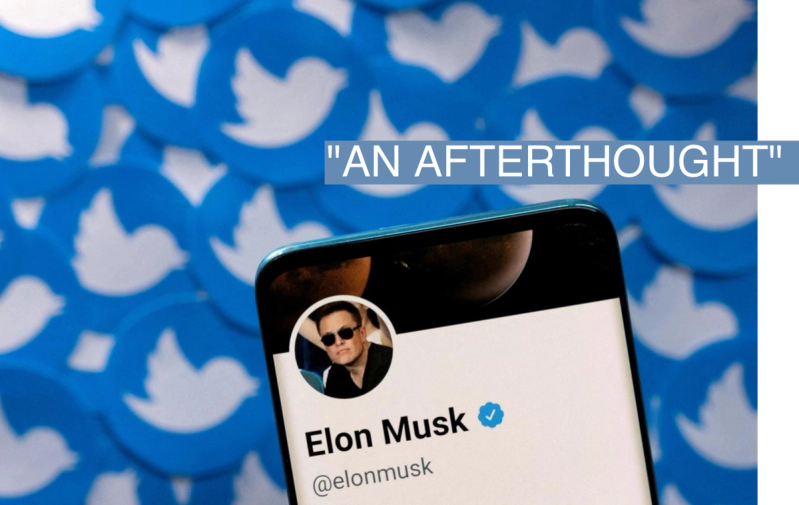The News

Joe Biden’s White House is less concerned about Elon Musk’s takeover of Twitter than many Democrats, officials said in recent interviews.
That’s because Biden’s team believes Twitter is largely valuable for just two things:
- Selling its message to journalists and other influential figures.
- Encouraging friendly activists to put pressure on those elite voices.
“There’s a crowd within the White House that cares about disinformation and thinks it’s a major problem for Democrats narrowly and democracy more broadly,” an administration official said of Musk’s efforts to relax moderation and make the site more welcoming to the right. “But it’s probably a minority.”
In this article:
Max’s view
Biden’s team seems to view the battle over moderation at Twitter as a matter of some concern — like, say, a big fire in California or the political crisis in Peru — but not something that’s exactly their problem.
The administration does not consider Twitter a vital part of any political strategy that reaches beyond the chattering classes. One former White House official told Semafor the platform is an “afterthought” in communications and press meetings, which tend to focus first on television and traditional media and on Facebook, a declining service that still reaches a mass audience.
It’s a stark contrast with President Donald Trump, who early this year sued the platform for removing him, comparing the ban to the Catholic Church’s silencing of the astronomer Galileo. As then-White House Press Secretary Jenn Psaki once put it: “I think it’s safe to say that the president spends a lot less time obsessing over social media than the former president.”
The disdain for Twitter inside the White House has little to do with right-wing control of the platform, and more to do with its role inside the Democratic Party: Biden’s wing sees Twitter as fuel for activist voices who push ingroup thinking, left-of-center bias, and socioeconomic bias.
When Biden ran for president in 2016, his staff’s mantra was “Twitter isn’t real life.” Now, aides point to data from The New York Times suggesting that Democrats are “more moderate, more diverse and less educated” than those on the social media platform.
Some of Biden’s aides tweet a lot: Chief of Staff Ron Klain most prominently, but also rapid response director Andrew Bates, and Digital Director Rob Flaherty.
Klain is well aware of the scrutiny paid to his Twitter account, which he largely uses to influence the journalists he knows are glued to the platform, according to current and former officials. In the months leading up to the midterm elections, he incessantly used Twitter to highlight when gas prices were decreasing (and ignored them when they weren’t).
Flaherty is also the main point of contact with social media platforms, and has driven the outreach to many of the administration’s most vocal supporters online. The digital team pushed to reward Heather Cox Richardson, the popular liberal Boston College professor and Substacker, and Brian Tyler Cohen, a progressive YouTuber, with rare Biden sitdowns. And earlier this year, his team invited some of the biggest-name #resistance accounts to the White House for a briefing and conversation about some of the victories Biden’s team wanted to highlight.
Flaherty, who won an internal battle to move the White House’s digital messaging outside its communications office, is among those who have expressed concern that Musk’s regime could mean more “disinformation” on Twitter.
But there, too, aides said they remain much more worried about false information circulating on Facebook.
One compared the White House view of Twitter to its view of Fox News: A medium with a big audience who aren’t usually open to persuasion, but which they can’t totally ignore.
Room for Disagreement
The White House posture has critics on the left. Crooked Media editor-in-chief Brian Beutler thinks Democrats ought to take Musk’s takeover dead seriously.
“It is not uncommon to watch ideas leap seamlessly from Twitter thread into the churn of U.S. policy making or political strategy or mainstream news media. As long as influential elites continue to use it the way they use it, having control over what dominates political discourse on Twitter will affect what our political leaders choose to prioritize,” he writes.
The View From India
The former head of Twitter in India, Manish Maheshwari, writes: “Neutrality is essential. If you favour one side, you are bound to lose the other. And it is the notice board of the world because the world is here.” He notes that when government pressure led Twitter to force some voices off the platform, they went to a local rival, Koo, which continues to compete in India.
“The only problem today with Koo is that it is local, and if you want to interact with people outside India, you need something else,” he wrote. “What if Koo expands globally? Then it becomes a viable alternative to Twitter for content creators and consumers.

